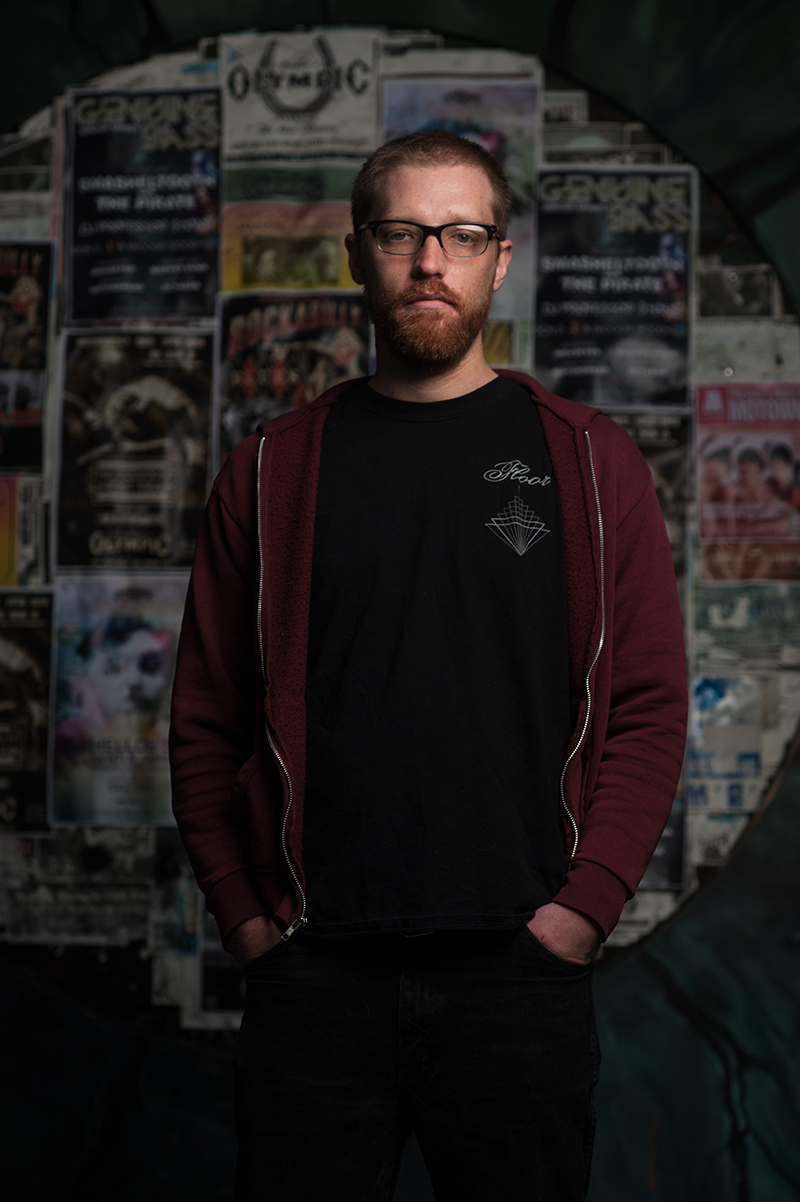Life Doesn’t Pull Any Punches: Talking Heavy with J.J. Anselmi
Art
SLUG: During the middle and latter parts of the memoir, you talk about how you deviated from the straightedge lifestyle. Is that a lifestyle you have returned to?
Anselmi: I typically just describe myself as sober. I experimented with different drugs and drinking for two years straight; I wasn’t really ever sober. When I turned 21, I realized it was one thing or the other—[sober or not]. I would try and control my drinking, but it would always, pretty quickly, turn into something that was out of my control. I would always feel like there was this voice in the back of my head telling me I could smoke more or drink more; I realized the only way I could turn it off was to not fuck around with drugs or booze at all. This coming September will be 10 years that I’ve been sober.
SLUG: In the book, you mention your family’s supposed mob connections, and how that association, in the eyes of neighbors and peers, would affect you negatively. Does your name still follow you around?
Anselmi: No, not really. That stuff was really specific to Rock Springs and Wyoming, where people kind of knew [about the allegations]. It stems from this 60 Minutes episode that Dan Rather did that focused on my grandpa in 1977. A lot of it was hearsay. The effect of that type of journalism was magnified times 10 in a small town setting like that; where everyone knows each other and family reputations last a long time.
I’ve tried to make it positive. The next memoir that I write will be about growing up in Rock Springs, and more specifically, after I moved back to Rock Springs from Austin. I’m gonna start examining the alleged mob connections. It will basically be [a sequel to Heavy]. It will be a little more slippery. I’m trying to emulate Denis Johnson’s Jesus’ Son, and make it very hallucinatory, because, at the time, that’s how it was for me.
SLUG: You spent some time in Salt Lake to see your grandma and BMX. What were your favorite Utah BMX spots?
Anselmi: There’s this amazing skate park in Provo called Proving Grounds. My grandma, who lives in American Fork, used to let me and my friends stay at her house for weeks on end, hang out and ride. Through that, we were able to see some of the legendary Salt Lake BMX pros, like Mike Aitken. I feel like Mike was really at the forefront of the move toward being stylish and away from doing circus tricks—like double back flips, stuff like that. Being able to watch Mike on his home turf is still one of the most amazing things I have seen.
SLUG: Along with BMX, music also plays a major role in Heavy. Who have remained some of your favorite bands or musicians?
Anselmi: I was really obsessed with Black Sabbath. They have stuck with me throughout the years as one of the heaviest bands. I always think about them when they were releasing their first four albums, in the context of how different and heavy and extreme their stuff was compared to what everyone else was putting out at the time.
SLUG: In writing this book, or perhaps even reading it, did you ever feel like you revealed too much of yourself to your audience?
Anselmi: I didn’t really worry about revealing too much of myself. But there is definitely a lot of stuff in Heavy that is pretty vulnerable. I guess I never felt like I revealed too much of myself because there is also a lot of stuff about the people around me, stuff that they don’t necessarily want out in the world. My justification for that was, “If you are gonna put other people out there, you need to put yourself out there, too.” There is some stuff that makes me feel kind of exposed, but I guess that is a good thing in the end.
SLUG: Who would your ideal audience be?
Anselmi: I hope that there are aspects of it that can appeal to anyone. But I also think of myself in high school. If I had had a book like this, it would have really been an endearing pat on the back, or something like that. So, I think the ideal audience would be high school kids or younger, or kids in their early college years who feel alienated or hopeless or are dealing with suicide.
So, Heavy, is exactly that: It is a raw and powerful piece of expression, beautiful in its honesty and unflinchingly self-aware. Like the straightforward fury of any given Pantera lick, Heavy hits hard and fast, with enough grit to satisfy. If you’ve sat out on your homemade ramp, waited for a ride outside the venue, or ever felt a little alone in a room full of people, this book—I can say with some surety—is for you. It tells a similar story—a kindred spirit through the soul’s black night.
And Anselmi? I think a great weight has been lifted off his shoulders.
